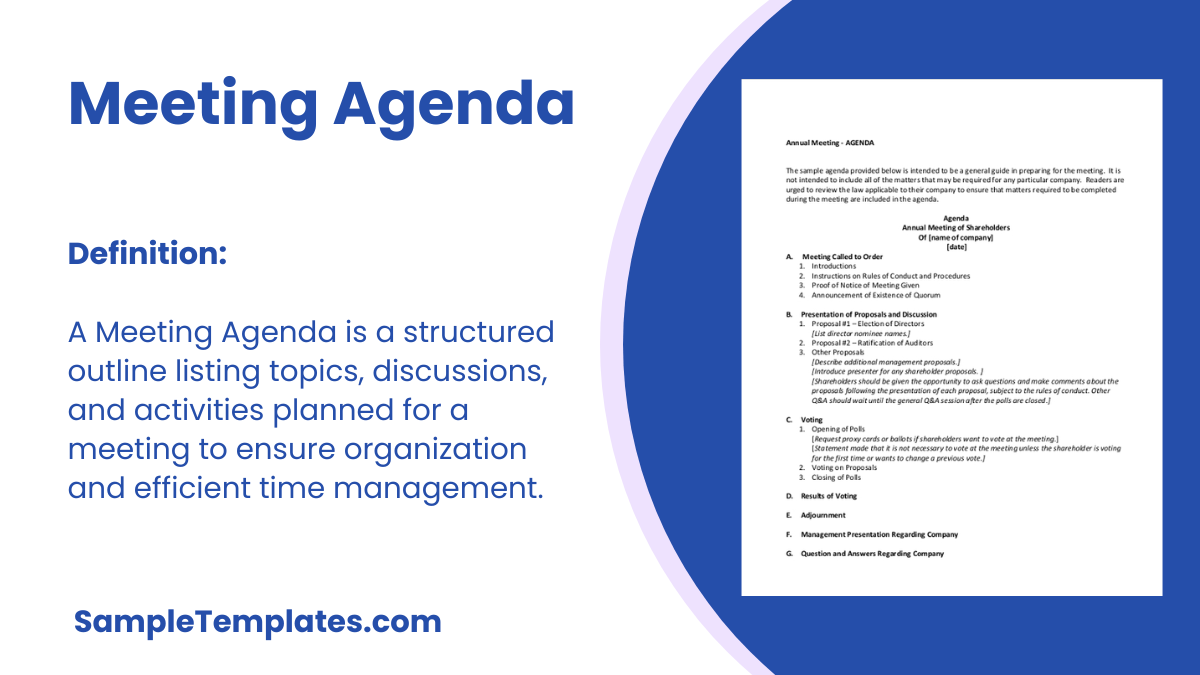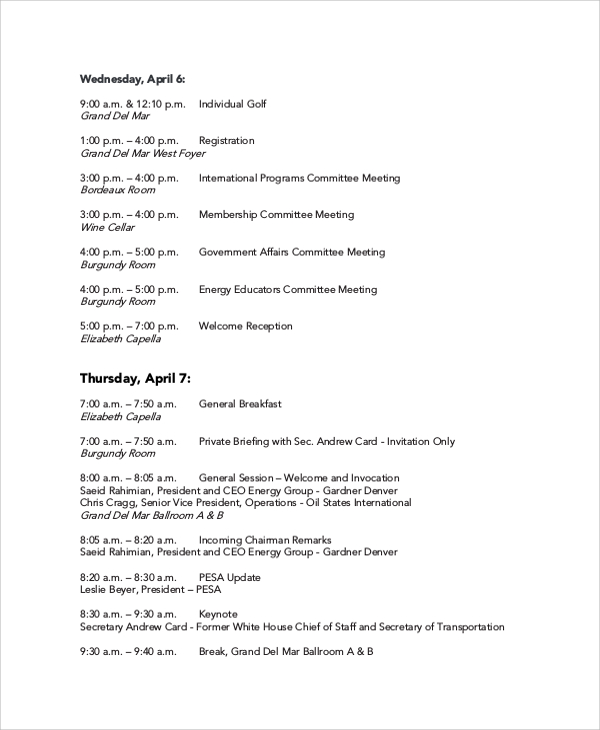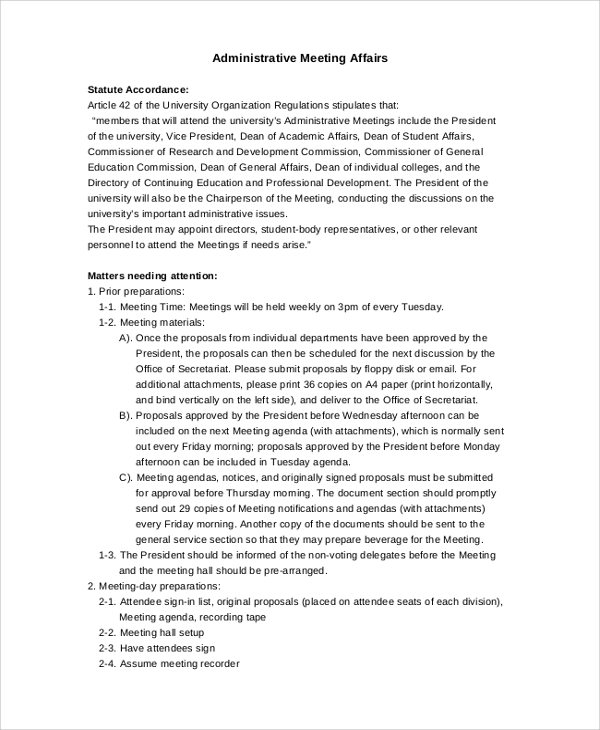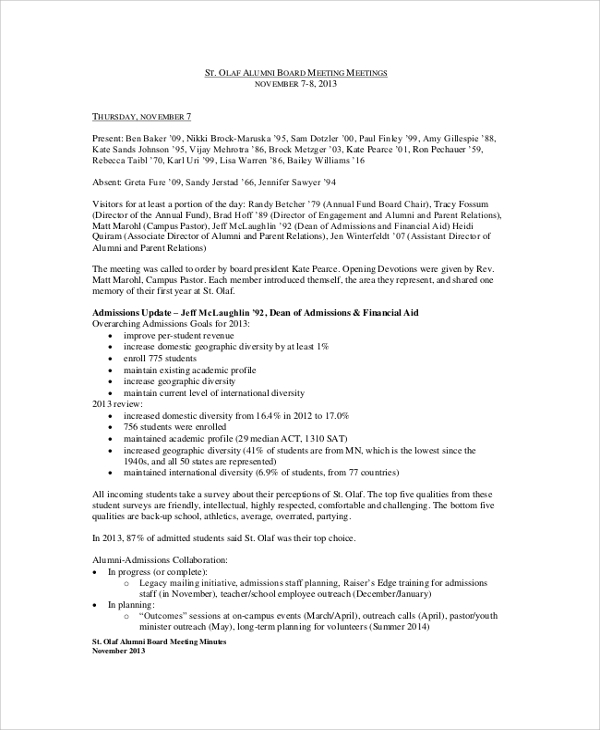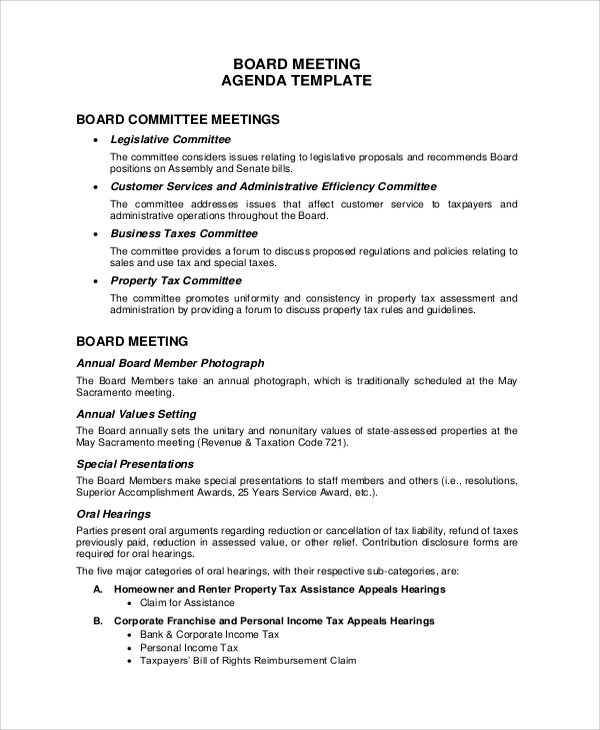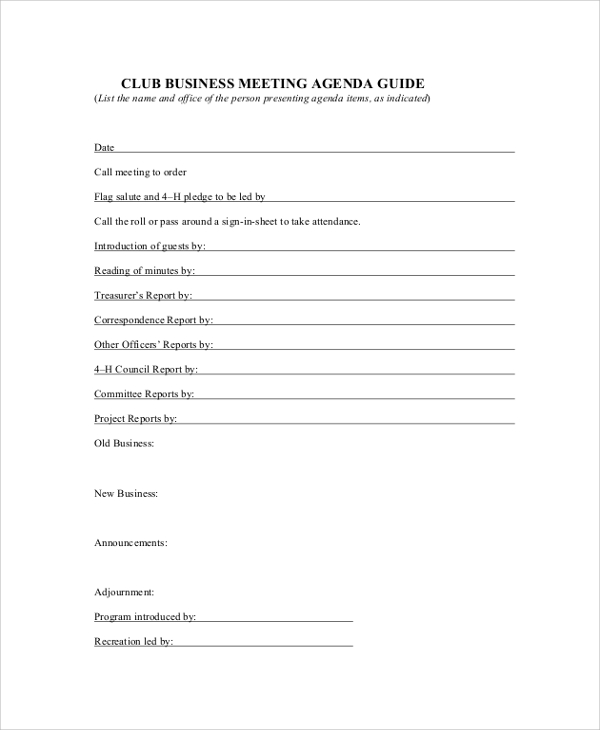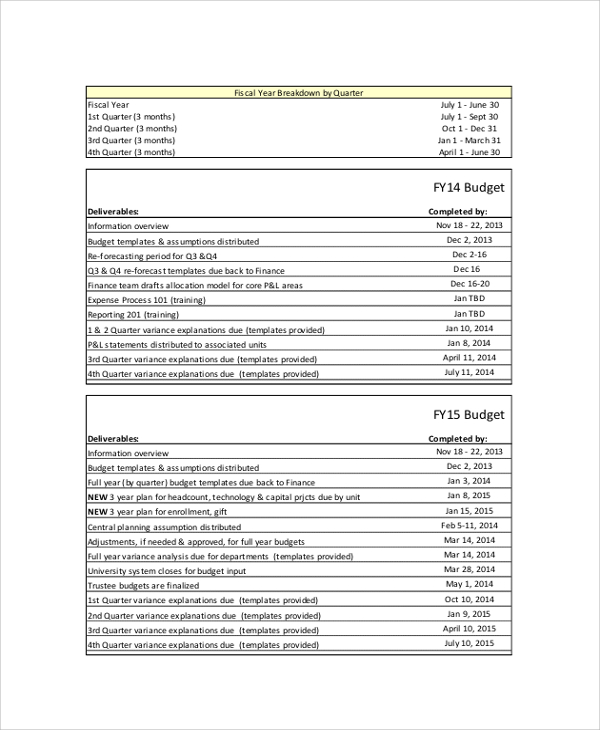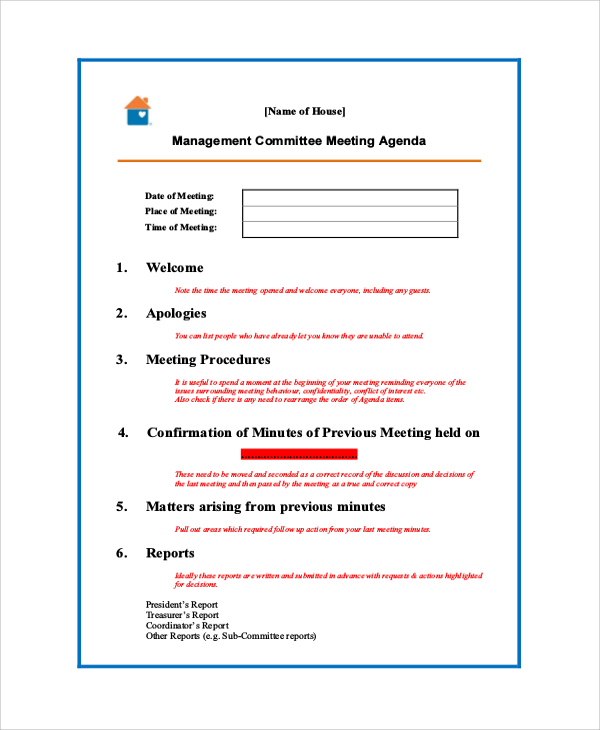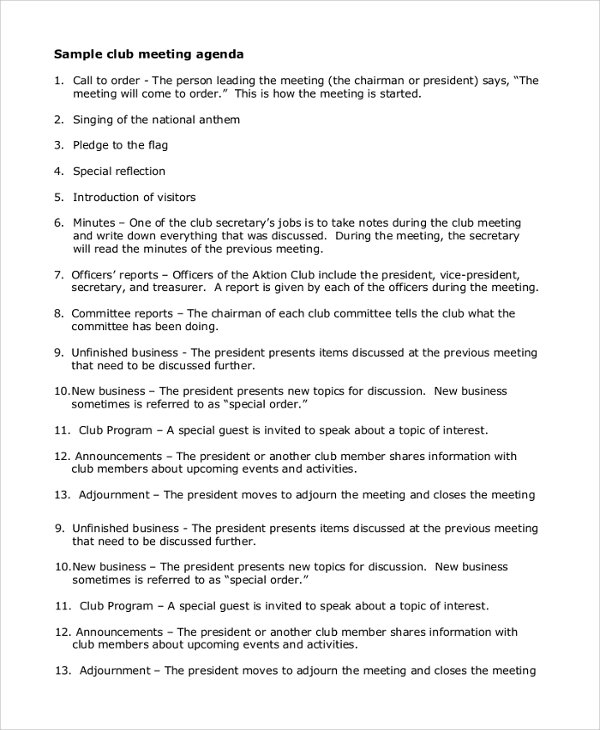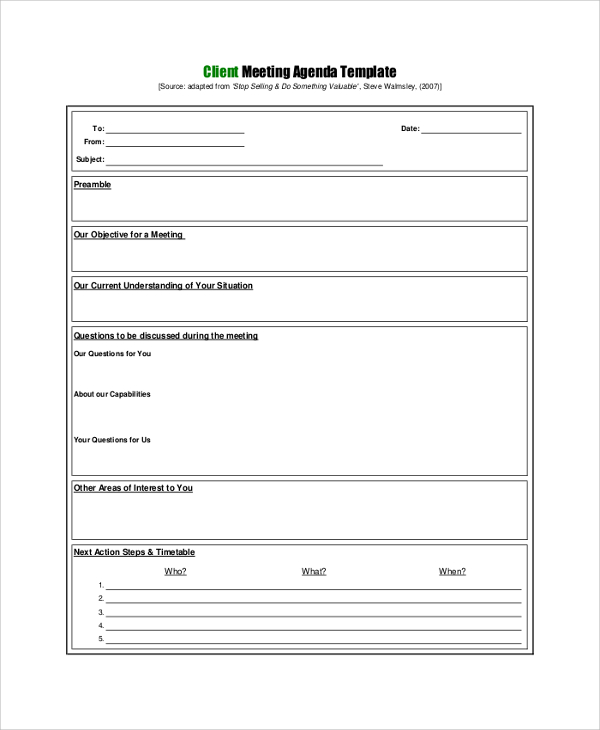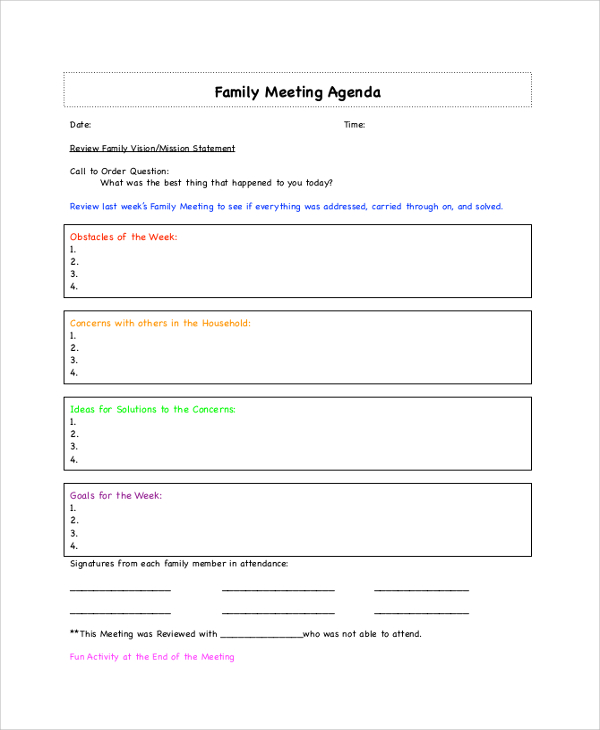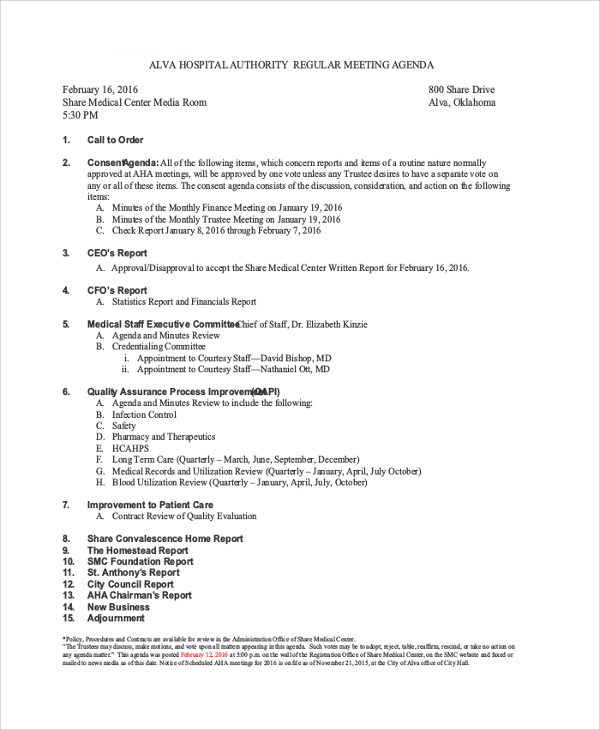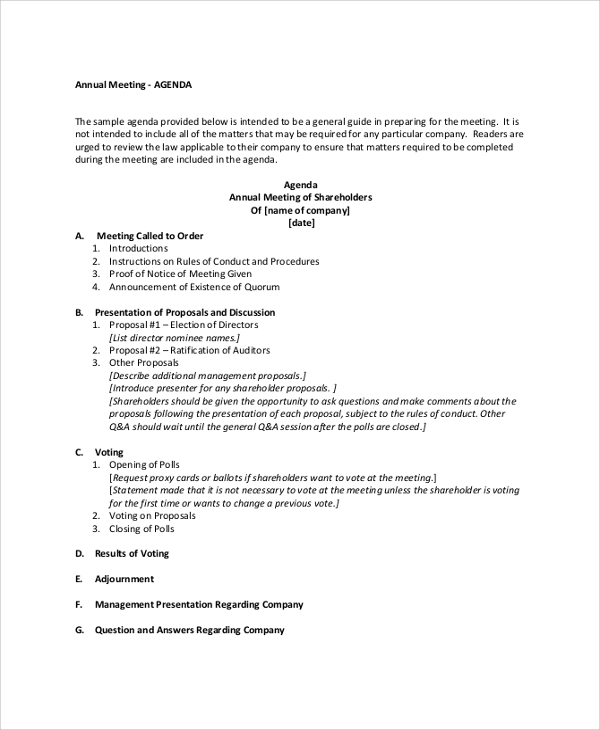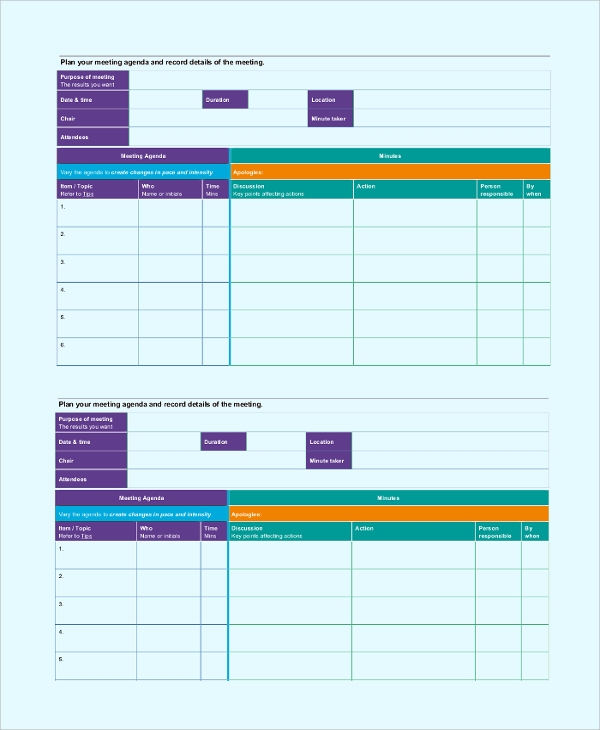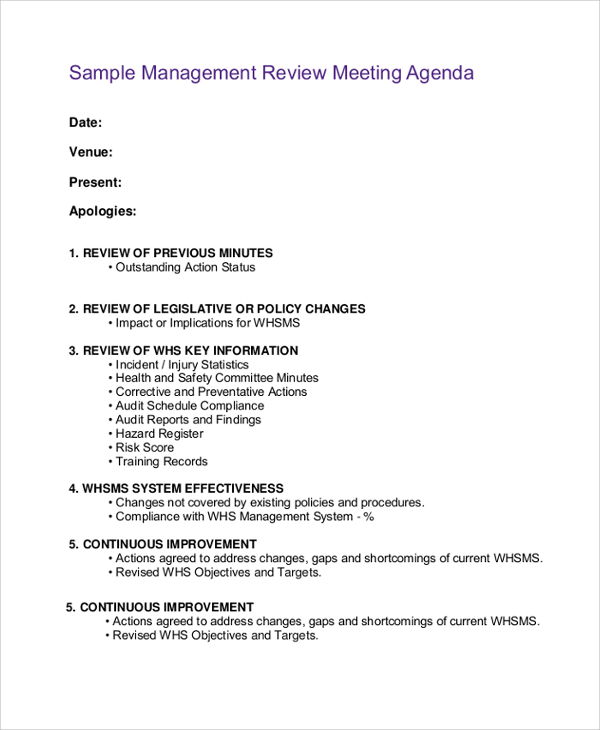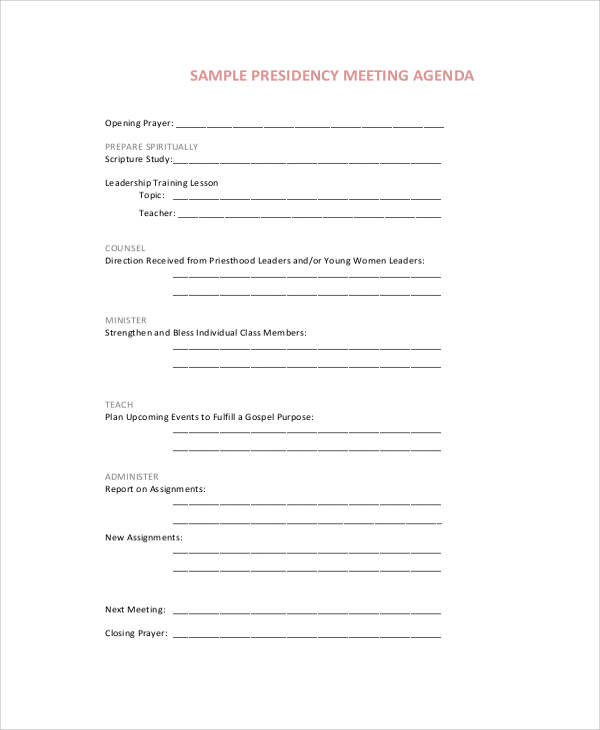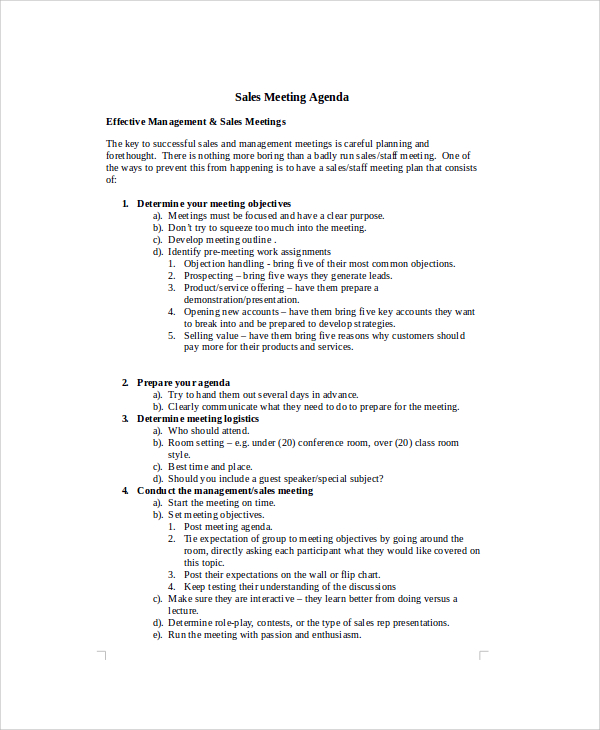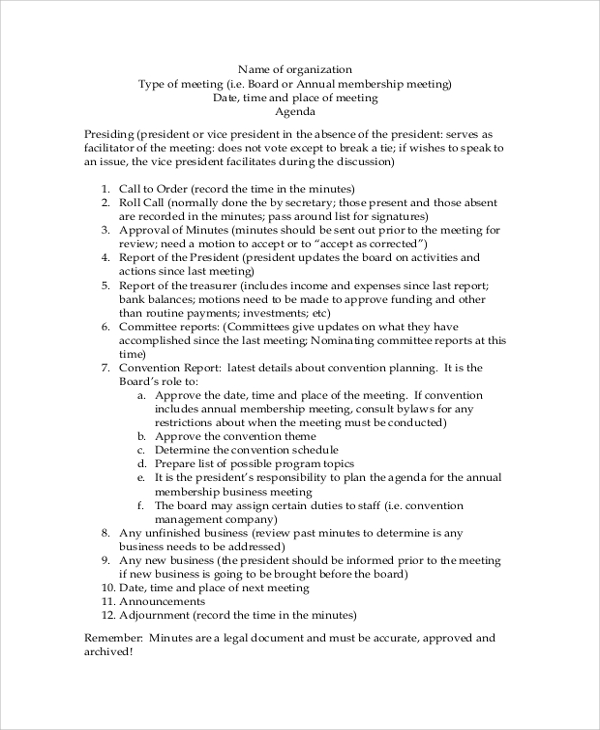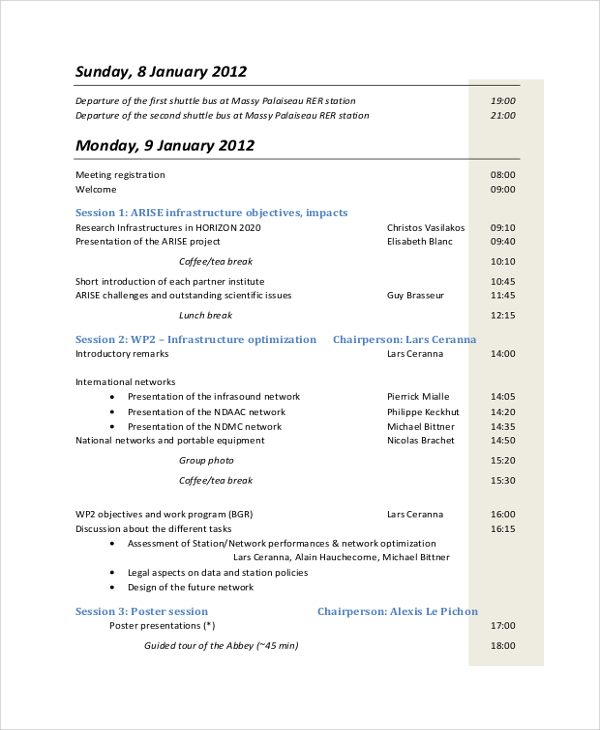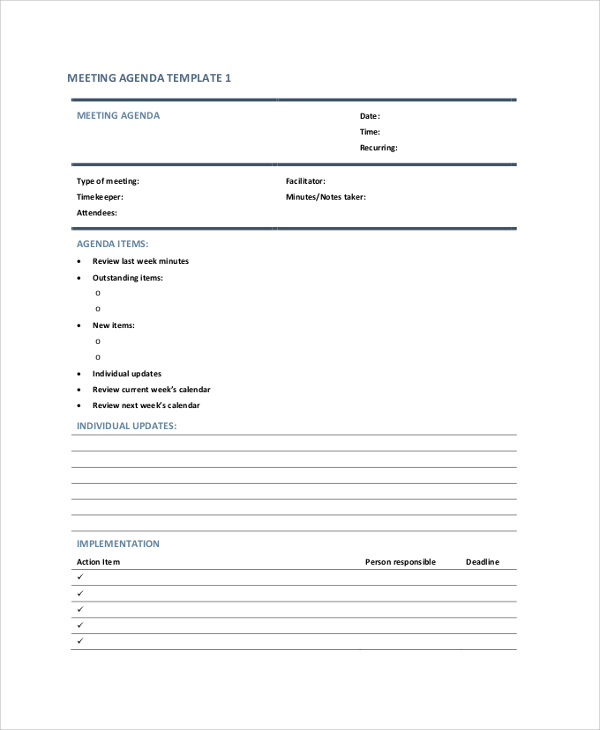Are you planning a meeting? Have you prepared a list of guests/invitees to invite for the meeting? But, wait, have you planned your business/individual meeting? Have you developed an agenda for the meeting? If the answer is no, then explore our collection of sample meeting agenda documents below and get help in planning Business Meeting Agenda. Our documents are available in PDF and MS-word that provides high-quality vision along with best quality prints.
Sample Annual Meeting Agenda
This sample document is an annual meeting agenda timeline. You will get the necessary help in scheduling flexible meeting hours for individual agenda discussion. Prepare a comfortable and stress-free meeting schedules for an agenda review.
Sample Administrative Meeting Agenda
Download this administrative meeting agenda sample report and get an idea of writing effective meeting agenda invitation letters and planning key points to be discussed in the meeting. Also, check the workflow chart for proposal analysis and implementations.
Sample Alumni Meeting Agenda
Universities conducting alumni meetings can use this sample document for reference. Cover all meeting agendas to be discussed in the meeting and schedule it effectively.
Sample Board Meeting Agenda
Use the above sample meeting agenda template to prepare a custom board meeting agenda document. Classify agendas and develop custom meeting agendas for different departments like sales, accounts, marketing, etc.
How Can I Write Meeting Agenda?
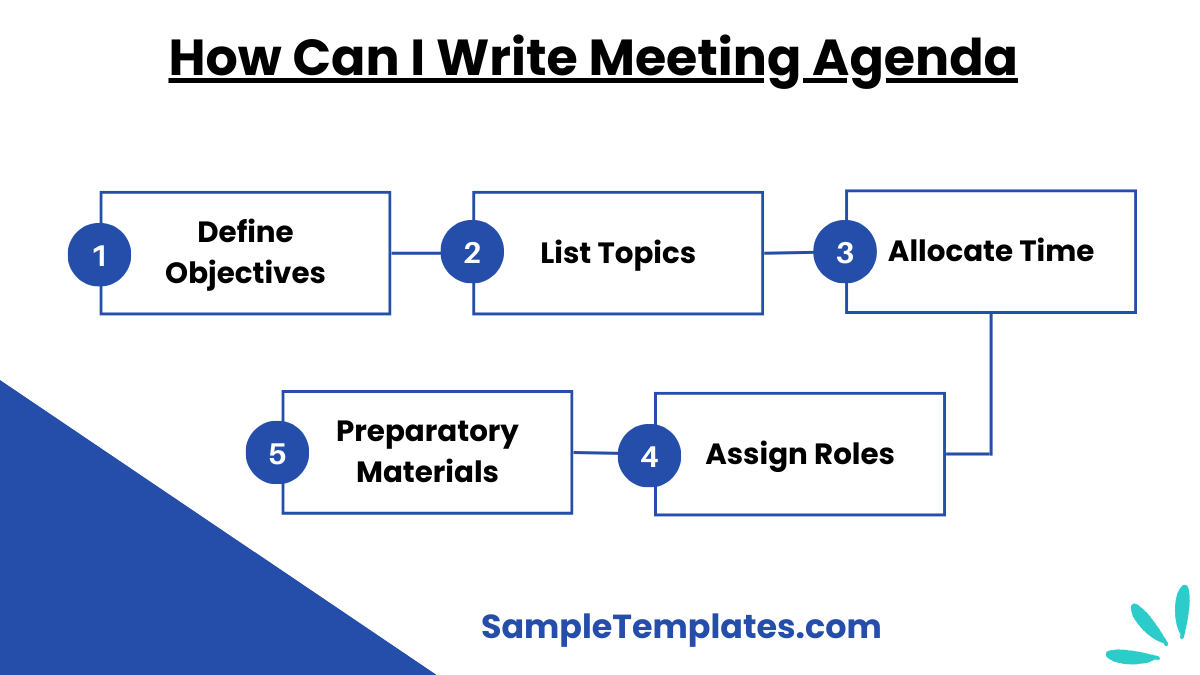
- Define Objectives: Clearly state the purpose of the meeting. Objectives should be specific, measurable, and achievable to guide the discussion and ensure the meeting has a clear focus.
- List Topics: Outline all topics to be discussed, arranged in a logical order. Prioritize items based on their importance and urgency. Include a brief description if necessary to provide context.
- Allocate Time: Assign a specific amount of time to each agenda item. This helps keep the meeting on track and ensures that all topics receive appropriate attention without overrun.
- Assign Roles: Specify who is responsible for leading each topic or section of the meeting. Assigning roles helps prepare participants and ensures accountability.
- Provide Preparatory Materials: If there are documents, reports, or other materials that participants need to review before the meeting, include references or attachments with the agenda. This encourages preparation and informed discussion.
Sample Business Meeting Agenda
If you are a project manager, director, or department head, then download this sample meeting agenda form to prepare custom meeting agenda invitation letters. Fill the input fields, print it and distribute it among the staff.
Sample Budget Meeting Agenda
Budget meeting agendas are classified via past business performance and current business needs. Download this PDF and get necessary help in sample planning custom budget meeting agendas for your business.
Tips to Create a Meeting Agenda
- Identify the Meeting’s Purpose: Every agenda should start with a clear statement of the meeting’s purpose or goal. Knowing what you hope to achieve will guide the rest of your agenda planning.
- Consult Key Participants: Before finalizing the agenda, reach out to key stakeholders or participants to gather input on what needs to be discussed. This ensures that all relevant topics are covered and participants feel involved and valued. You can also see more on Project Agenda.
- Set Realistic Timelines: Allocate a specific amount of time to each agenda item and be realistic about what can be accomplished in the time allotted. This helps manage meeting length and keeps discussions focused and efficient.
- Prioritize Agenda Items: Order agenda items by priority, ensuring that critical issues are discussed first. This way, if time runs out, the most important topics will have been addressed.
- Be Specific and Clear: Each agenda item should clearly state what needs to be discussed or decided. Avoid vague descriptions to ensure that participants come prepared and understand what is expected of them.
- Assign Roles: Specify who is responsible for leading each part of the meeting. This could include who will present topics, who will lead discussions, and who is responsible for taking notes or moderating.
- Include Preparation Tasks: If participants need to prepare sample reports, read documents, or perform analyses before the meeting, list these tasks in the agenda. This preparation is critical for informed and productive discussions.
- Distribute the Agenda in Advance: Send out the agenda well before the meeting, giving participants enough time to prepare. This also allows for any adjustments based on sample feedback or additional topics that may arise.
Sample Committee Meeting Agenda
Both profitable and non-profitable organizations and committees can refer this sample document for planning a custom meeting agenda. Add necessary critical agendas, meeting time, meeting date and other information in the report and forward it to the participants.
Sample Club Meeting Agenda
If you run a club or planning a club meeting agenda, then get ideas for identifying meeting agendas to be discussed in the meeting. Cover all the key terms in the meeting and enhance services for welcoming and entertaining your club members and visitors.
Purpose of Meeting Agenda
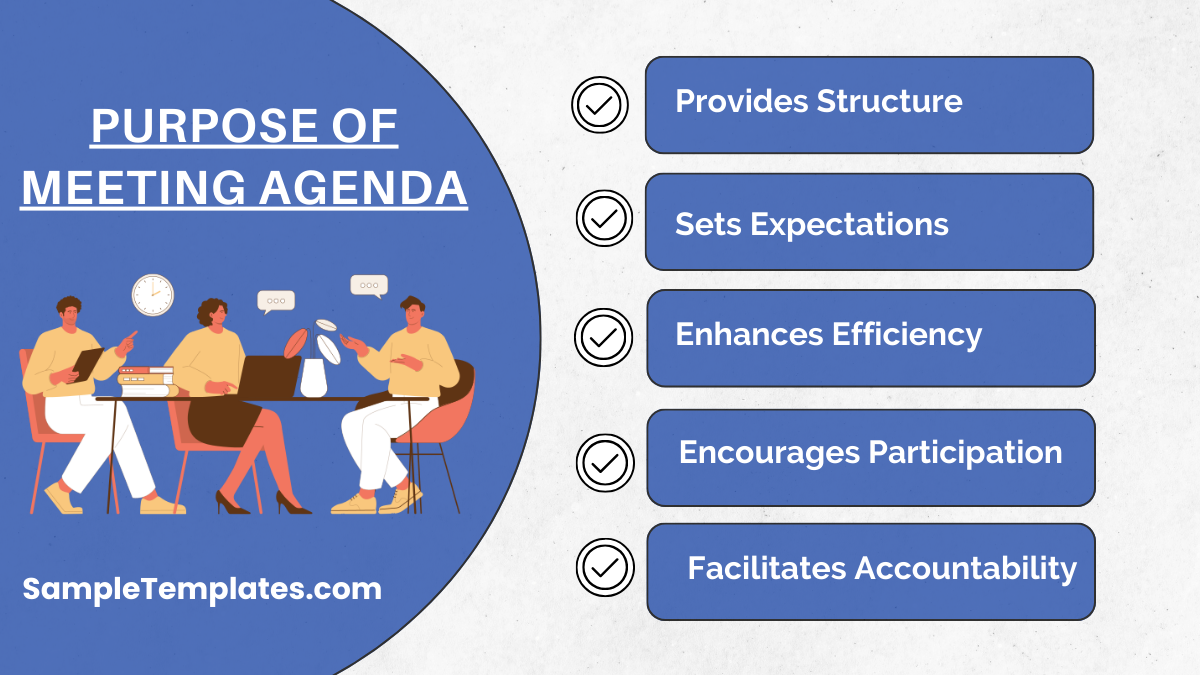
- Provides Structure: An agenda sets a clear structure for the meeting, outlining topics and activities in a logical sequence. This organization helps manage the meeting’s flow and ensures that all necessary topics are covered. You can also see more on Agenda for Staff Meeting.
- Sets Expectations: It communicates to participants what will be discussed, allowing them to prepare accordingly and arrive with the right mindset and necessary materials.
- Enhances Efficiency: By detailing topics and allocating time for each, an agenda prevents the meeting from deviating off-topic and helps manage time effectively, making the meeting more efficient.
- Encourages Participation: When participants know the agenda in advance, they can prepare questions and contributions, leading to more engaged and meaningful participation. You can also see more on Training Agenda.
- Facilitates Accountability: Assigning roles and responsibilities in the agenda ensures that everyone knows their parts, promoting accountability among participants.
- Focuses Discussion: A clear agenda helps keep the discussion focused on the objectives, reducing the risk of side conversations or irrelevant topics.
- Enables Measurement of Success: By outlining objectives and goals, an agenda provides a benchmark against which the meeting’s success can be measured, allowing for evaluation of productivity and effectiveness.
- Supports Record Keeping: An agenda can serve as a record of planned discussions and decisions, which is useful for tracking progress on projects, documenting corporate governance, and providing a basis for future meetings. You can also see more on Event Agenda.
Sample Client Meeting Agenda
Print the sample document and start preparing a custom client meeting agenda from the next moment. Add preamble, identify the meeting objective, and write your current knowledge about the project/problem for a better face-to-face discussion.
Sample Family Meeting Agenda
Sample family meeting agenda is a basic family meeting agenda template. Download the document, take a printout, fill the basic form and circulate it among the family members.
Sample Hospital Meeting Agenda
Sample hospital meeting agenda is an example medical meeting agenda document. R&D it and prepare custom hospital meeting agenda covering all the key points.
Sample Shareholders Meeting Agenda
If your organization is preparing or going to conduct a shareholder business meeting, then you will need to develop key agendas for discussion. Refer this document for a brief meeting agenda identification.
Types of Agendas
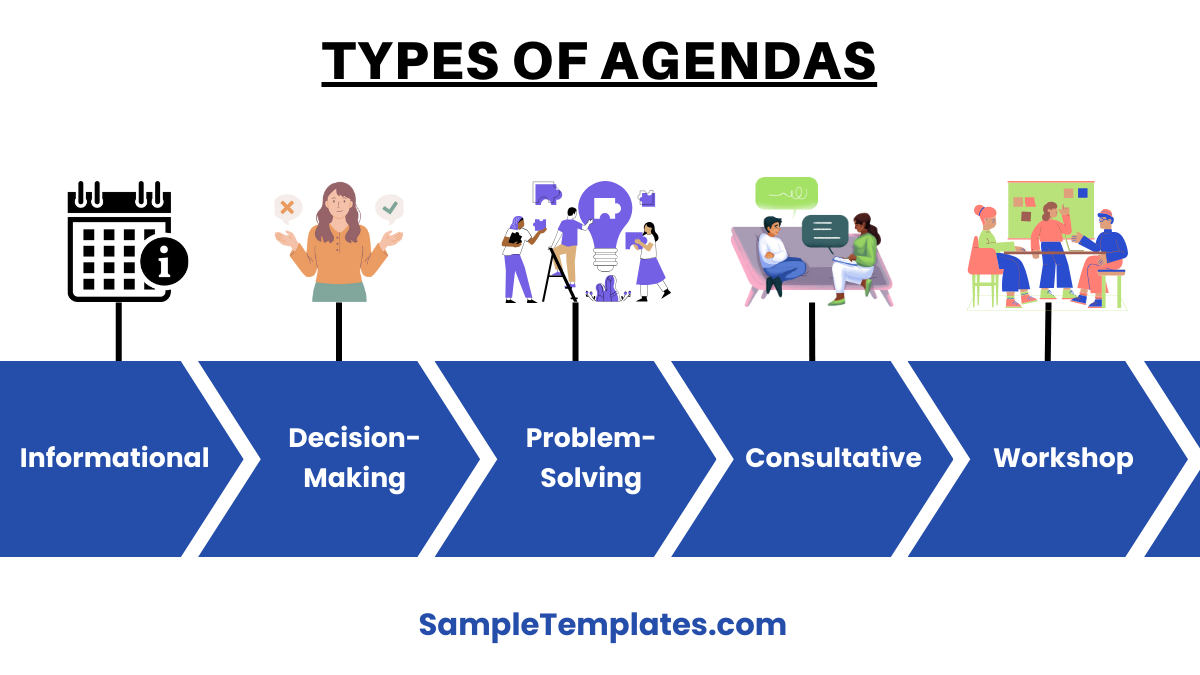
- Informational Agenda: Primarily focused on delivering information and updates to attendees. This type of agenda is common in briefings, where the goal is to inform rather than to solicit feedback or make decisions.
- Decision-Making Agenda: Used when the primary purpose of the meeting is to make decisions. This agenda is structured around specific issues or questions that need resolution, and it requires active participation and input from attendees to reach conclusions. You can also see more on Workshop Agenda.
- Problem-Solving Agenda: Designed to address specific problems and find solutions. It typically includes a detailed description of the issue, background information, and segments for brainstorming solutions and planning implementation strategies.
- Consultative Agenda: Used for meetings where input and feedback from participants are sought on specific topics. This type of agenda is common in workshops and roundtable discussions, where the goal is to gather diverse perspectives and expert advice. You can also see more on Review Agenda.
- Workshop Agenda: Focuses on learning and development, used primarily for training sessions or educational meetings. It often includes time for presentations, breakout sessions, hands-on activities, and discussions to facilitate learning and engagement.
Sample Leadership Meeting Agenda
Download this document and print meeting agenda templates for hand customization. Write all business meeting details including date, time, venue, listed agendas and distribute the copies among the staff.
Sample Management Meeting Agenda
If you have conducted a business meeting and discussed all critical agendas, then download this PDF for making a custom action plan. You will need to print the document for planning custom action plans.
Sample Presidency Meeting Agenda
If you have finalized the agendas and have prepared a schedule for the presidency meeting agenda. So, what’s next? Download the sample meeting agenda document and make a custom invitation letter to inform participants about the meeting agenda schedule and program.
Benefits of an Effective Meeting Agenda
- Improved Focus: A well-prepared agenda keeps the meeting focused on specific, predetermined topics, helping to avoid unnecessary digressions and keeping discussions relevant and to the point. You can also see more on Board Meeting Agenda.
- Enhanced Preparation: When participants receive the agenda in advance, they can prepare adequately, bringing necessary documents or formulating thoughts on discussion topics, which leads to more productive and informed contributions.
- Better Time Management: Agendas allocate specific times for each item, helping to ensure that the meeting covers all topics within the allotted time and respects participants’ schedules, reducing the likelihood of overruns.
- Increased Engagement: Knowing the topics of discussion beforehand helps participants engage more effectively. They can think about the issues, prepare questions, and actively participate in the discussion.
- Facilitates Decision-Making: With a clear structure and specific objectives outlined, decision-making becomes more streamlined and focused, which can expedite the process and improve the quality of decisions made. You can also see more on Agenda Templates.
- Accountability and Role Clarification: Agendas can assign specific topics to different individuals, clarifying roles and responsibilities, which enhances accountability and ensures that all necessary viewpoints are represented.
- Records and Follow-up: An effective agenda can serve as a record of the meeting’s purpose and what was intended to be accomplished, which is useful for follow-up actions and future reference, ensuring continuity between meetings.
- Reduces Meeting Anxiety: Participants often feel more at ease when they know what to expect in a meeting. An agenda provides a preview of the discussions, which can help reduce anxiety and promote a more comfortable, open environment.
Sample Sales Meeting Agenda
This document is a complete guide for preparing custom sales meeting agenda documents. It contains a brief description of goal identification, agenda preparation, and logistics.
Sample Membership Meeting Agenda
Planning an annual membership business meeting and need help in preparing meeting agenda documents and papers? Refer this sample meeting agenda document template and prepare quick custom meeting agendas.
Sample Kickoff Meeting Agenda
If you are launching a program and planning a kick-off meeting, then refer this sample kickoff meeting agenda document for help. Get necessary help in planning and scheduling business meetings and discussion programs.
Sample Meeting Agenda Example
This sample meeting agenda is a PDF document that contains both the meeting agenda examples and meeting agenda templates. Prepare custom meeting agenda invitation letters and print them for distribution.
What are the four P’s of a meeting agenda?
Purpose, People, Process, and Payoff—clarify why you’re meeting, who should attend, how you’ll approach topics, and what you expect to achieve.
How do you lead a meeting agenda?
Start on time, follow the agenda, encourage participation, keep discussions on track, and summarize key points and next steps at the end. You can also see more on Strategy Meeting Agenda.
Who decides the agenda for a meeting?
Typically, the meeting’s organizer or leader decides the agenda, often after consulting with key participants to incorporate relevant topics and issues. You can also see more on Consultant Meeting Agenda.
What should not be included in a meeting agenda?
Avoid overly vague items, personal issues, topics not relevant to the entire group, and any matter that doesn’t require a decision or discussion.
If you have any DMCA issues on this post, please contact us!
Related Posts
Retirement Speech Samples & Templates
Weekly Schedule Samples & Templates
Contractual Agreement Samples & Templates
FREE 9+ Amazing Sample Church Bulletin Templates in PSD | PDF
Sample Business Card Templates
Sample Cashier Job Descriptions
Questionnaire Samples
FREE 10+ Sample HR Resource Templates in PDF
FREE 10+ HR Consulting Business Plan Samples in MS Word | Google Docs | Pages | PDF
FREE 49+ Sample Job Descriptions in PDF | MS Word
FREE 16+ Nonprofit Budget Samples in PDF | MS Word | Excel | Google Docs | Google Sheets | Numbers | Pages
FREE 13+ Academic Calendar Templates in Google Docs | MS Word | Pages | PDF
FREE 10+ How to Create an Executive Summary Samples in Google Docs | MS Word | Pages | PDF
FREE 23+ Sample Event Calendar Templates in PDF | MS Word | Google Docs | Apple Pages
Company Profile Samples
